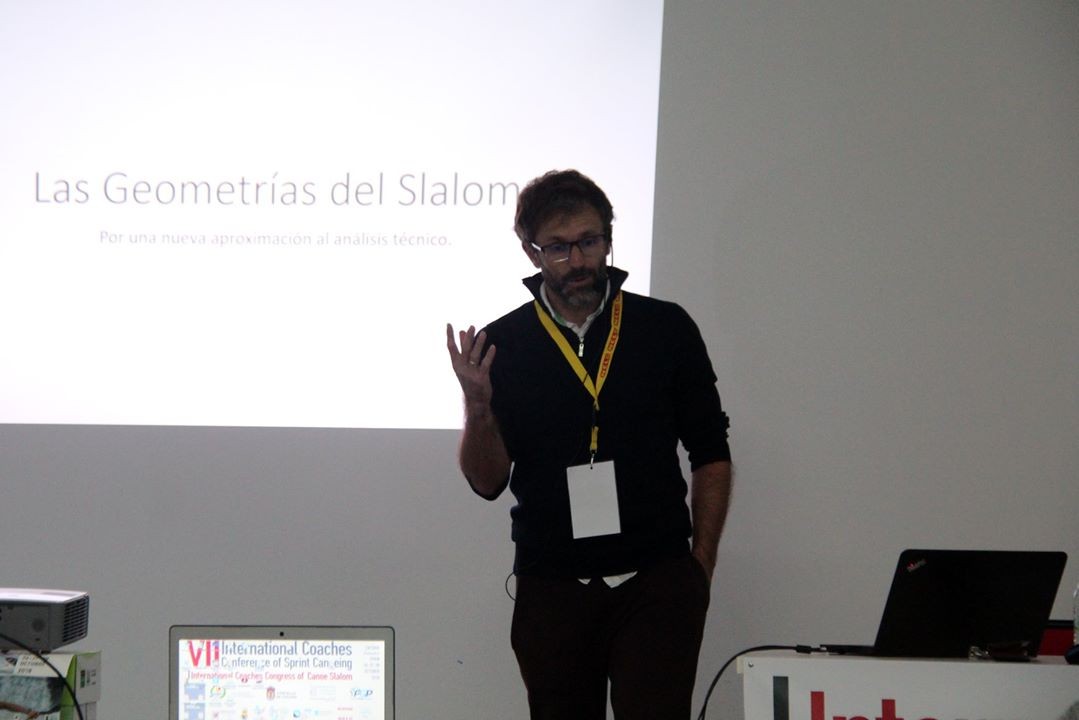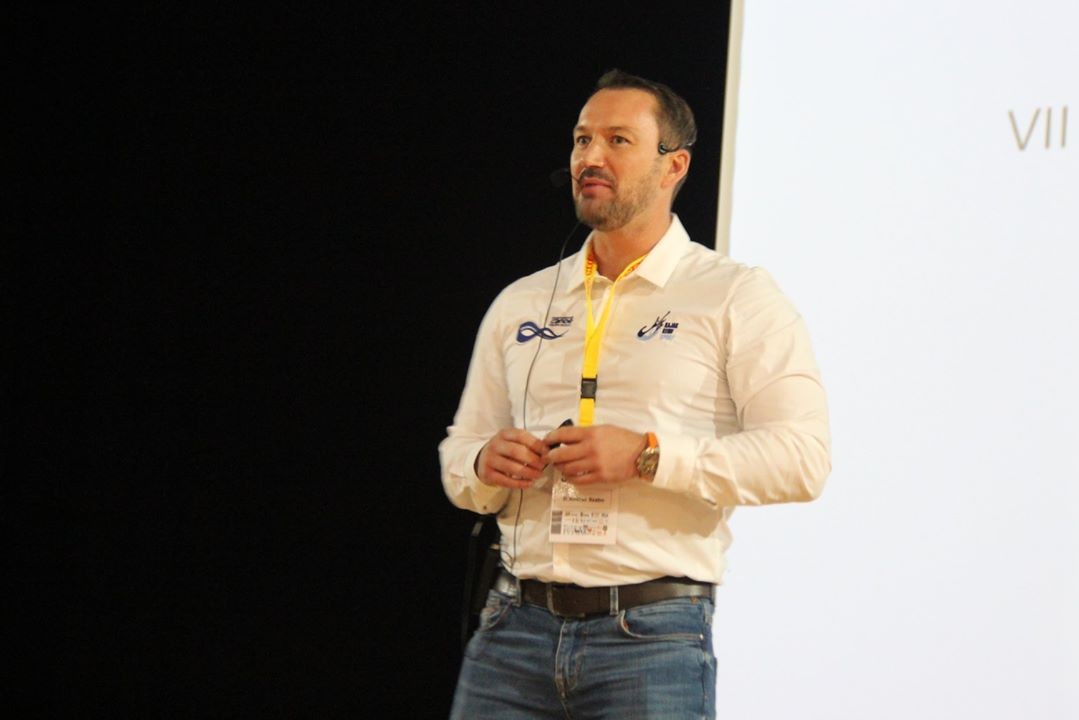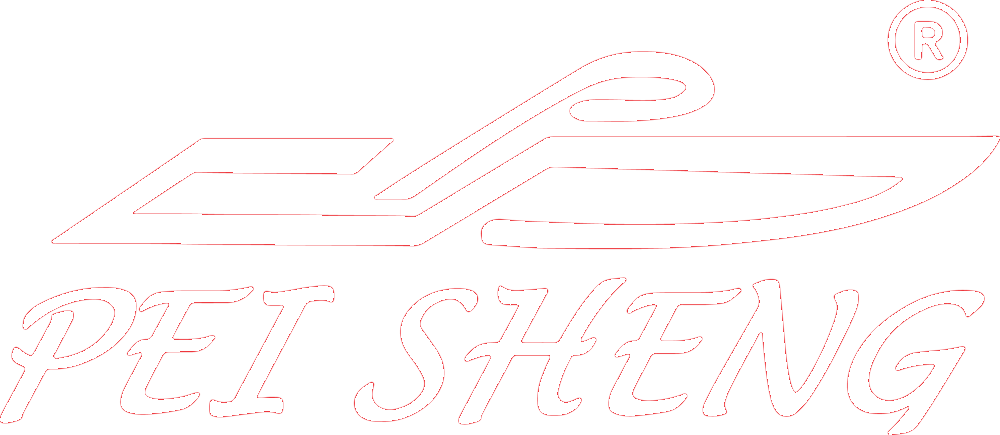The 2018 edition of the International Congress of Canoeing Coaches in Catoira, Spain, brought the seventh congress for canoe sprint coaches and the inaugural edition of the congress for canoe slalom coaches which was run simultaneousely. Around 300 atendees were able to hear experienced coaches and to end the day with a style also an Olympic champion Yurii Cheban from Ukraine.
The first presentation of the weekend was done by David Calvente, who cooperates with Miguel Garcia and Spanish K4 500 metres crew. He was discussing the theoretical-practical considerations on the kayak technique in flat water racing. He showed various simulations how the water affects the blade. Among other things he pointed out the problem of usage of old theoretical works that were made for certain types of paddles and direct transmission of these theories to curent paddle models.
At the same time the first ever slalom lecture at the congress in Catoira was presented by Spanish national coach Xabi Taberna, who had a presentation titled "The Geometries of Slalom". In his presentation he talked about the technical model of his protegee Ander Elosegui before and after the 2008 Olympic Games.
Italian Andrea Pace talked about the H-graph and the meta-technique for kayakers. He also presented the software he developed and offered for free to everyone who is interested. The software allows users to observe tactics and how athletes put these tactics into practice and allows users to analyse each individual athlete’s data – this data can be inserted manually or by means of text tables provided by electronic devices.
Andras Szabo continued the first congress day with presentation on importance of coordination and strength development. He pointed out the importance of balance and coordination before going to high performance trainings. He also showed examples of practices and benefits of doing yoga.
The next presenter of the day was coming from Italy. Dr. Sabina Strano talked about the less pleasant side of high performance sport - doping. First she presented the short history of doping, before moving on to athlete's biological passport, different types of doping and the infamous Russian doping history. She also showed some of the side effects doping can have on it's users.
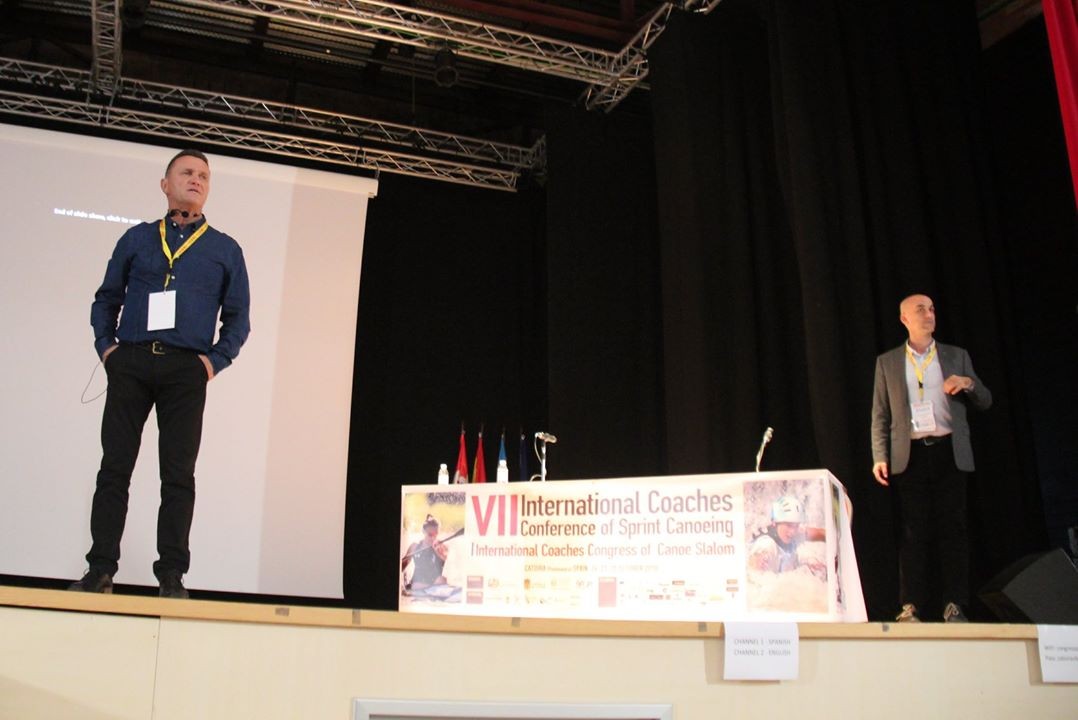
Hungarian coach Miklos Simon talked about the selection process and preparations of Hungarian women's team and he pointed out that in the selection process for a crew boat priority lies on the individual performance in K1. He told coaches that in the preparation period they had 33 weeks of individual skills development, on the contrary to 13 weeks of crew boat skills development. Due to Dantua Kozak's tight schedule in K1, K2 and K4, they only trained once per week in K4 prior to World Championships. This was possible because the crew had a nice technique as well as all the paddlers were on a very high level individually.
The second canoe slalom presentation of the day was supposed to be done by Italian coach and former Brazilian head coach Ettore Ivaldi, but he could not attend due to personal reasons. Instead of him the prepared presentation was carried out by his former co-woker in Brazilian and Italian team Guillermo Diez - Canedo, who talked about the technique and development of the proprioceptive skills.
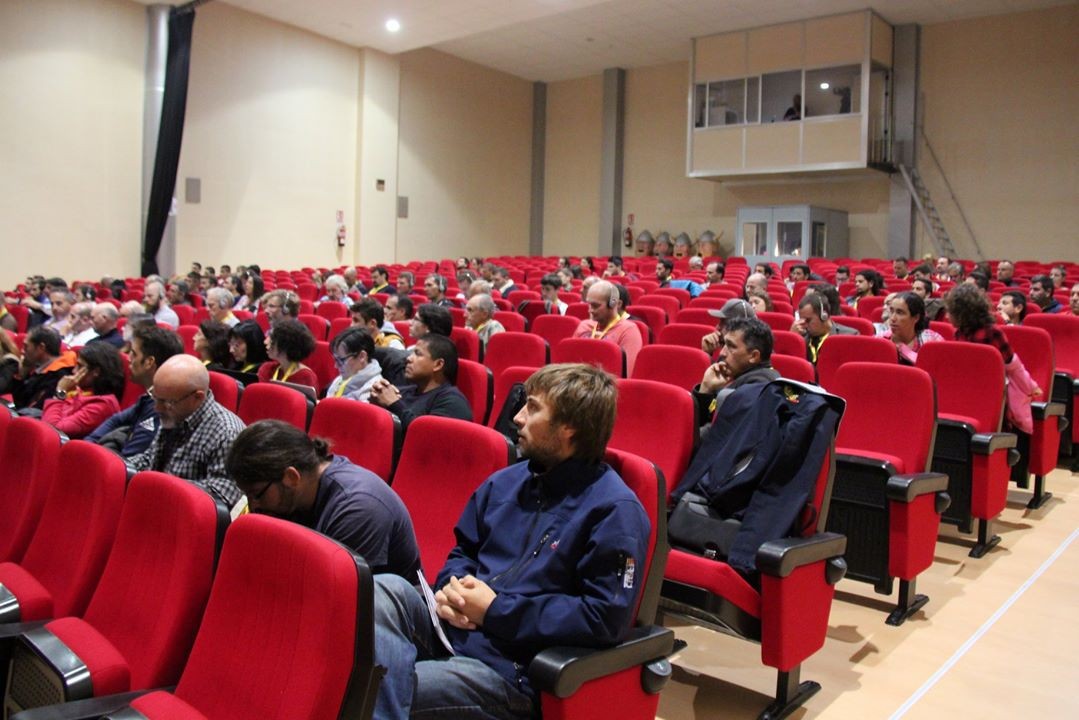
The interesting presentations were not over just yet. Ukrainian canoeist Yurii Cheban discussed his beginnings and talked about his 2016 Rio Olympics experience where he became an Olympic champion after a real drama. He shared his memories of being eliminated in the semifinal and being so dissapointed he had to hide himself from people. But some time after this hard moments for him, he realised the mistake in the progression was made and that he was supposed to get a place in the final. As he was left all alone on the course no one could help him fight for his place in the final, so he started to look for someone who could help him. Eventually he got the confirmation he will be able to fight for the Olympic medal. The anger and dissapoinment were so big that he could hardly sleep before the big final, but then he turned this into the biggest motivation for the 200 metres race. This taught him that you must first trust yourself.
To conclude the first day students got the opportunity to present their research papers on canoeing.
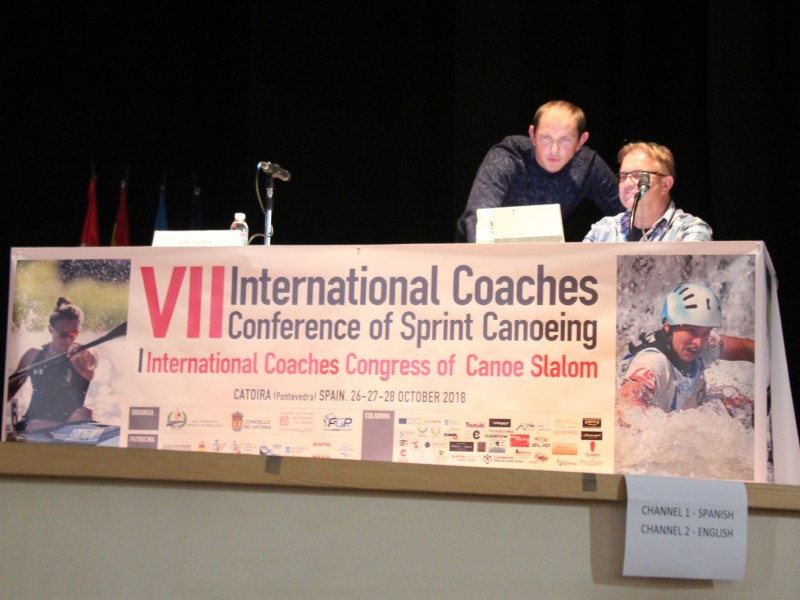 26.10.2018
26.10.2018
